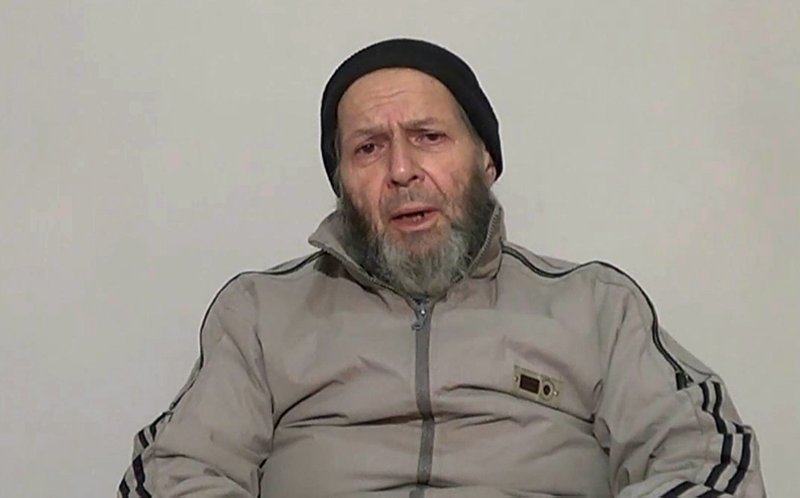WASHINGTON -- Softening long-standing policy, the Obama administration will tell families of Americans held by terror groups that they can communicate with captors and even pay ransom without fear of prosecution.
The shift comes as part of a broad review of U.S. hostage guidelines that will be released today.
President Barack Obama ordered the review last fall after the deaths of Americans held hostage by the Islamic State extremist group. The families of some of those killed complained about their dealings with the administration, saying they were threatened with criminal prosecution if they pursued paying ransom in exchange for their loved ones' release.
Two U.S. officials familiar with the review said there will be no formal change to the law that makes it a crime to provide money or other material support to terror organizations, nor will Obama directly approve of families paying ransom. However, the administration will make clear that the Justice Department has never prosecuted anyone for paying ransom and that that will continue to be the case.
The review is also expected to make clear that the U.S. government can help facilitate communications with terrorists on behalf of families seeking the release of hostages. However, that assistance will still stop short of government ransoms or other concessions.
While the government has long turned a blind eye to family contacts with terrorists, officials acknowledge that the unspoken policy has been applied unevenly. The inconsistencies have been magnified in recent months with the kidnappings and killings of Americans by terror groups.
Four Americans have been killed by the Islamic State since last summer: journalists James Foley and Steven Sotloff and aid workers Peter Kassig and Kayla Mueller. After the release of videos showing the beheadings of some hostages, Obama approved an airstrike campaign against the Islamic State in both Iraq and Syria.
The families' anguish has been deepened by the fact that European governments routinely pay ransom for hostages and win their release. The U.S. says its prohibitions against the government and private individuals making any concessions to terrorist demands are aimed both at preventing more kidnappings and preventing more income for terror groups.
However, the Obama administration did negotiate with the Taliban last year to win the release of Army Sgt. Bowe Bergdahl, who was captured after walking away from this post in Afghanistan. Five Guantanamo Bay detainees were exchanged as a condition of his release.
White House officials said those negotiations were permissible because Obama sees a special responsibility to leave no American service member behind on the battlefield.
Elaine Weinstein, whose husband, Warren Weinstein, was accidentally killed by a U.S. drone strike in April while being held hostage by al-Qaida, argued Tuesday against the government making such distinctions between U.S. citizens.
"The people who take American citizens working abroad as hostages do not discriminate based on their job or employer, and neither should our government," Weinstein said in a statement.
The policy clarification was first reported by Foreign Policy magazine. Officials familiar with the review confirmed the details Tuesday on the condition of anonymity because they were not authorized to do so publicly ahead of today's release.
Obama planned to speak about the full review today after meeting with some of the families who participated in the process. The White House invited the families of 82 Americans held hostage since 2001 to participate in the review, and 24 agreed to do so.
The National Counterterrorism Center, which oversaw the review, also consulted with hostage experts from the U.S. and other countries.
As part of the review's findings, Obama will announce the creation of a hostage recovery "fusion cell" that will coordinate the multiple government agencies involved in such issues. The new office aims to address family frustrations about getting contradictory information from different agencies by creating a single point of contact.
The administration is not acquiescing to the requests of some families to house the fusion cell in the White House's National Security Council. Instead, the office will be at the FBI.
Rep. John Delaney, D-Md., who has worked closely with the Weinstein family, said the administration is considering putting a senior FBI official in charge of inter-agency hostage-recovery efforts. Delaney said he and the Weinsteins would rather have those efforts overseen by a higher-level government official with the authority to cut through bureaucracy.
Obama is also expected to announce the creation of a State Department special envoy post that will head the administration's dealings with foreign governments on hostage matters.
Information for this article was contributed by Bradley Klapper and David Dishneau of The Associated Press.
A Section on 06/24/2015


